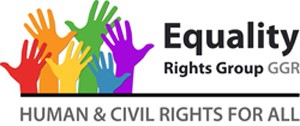Feb 10 - ERG Raises Concerns About Transparency Of Dr Giraldi Home Report
 ‘We are clearly in no position to judge the truth or otherwise of the allegations which were the subject of the Dr Giraldi Home Inquiry,’ Equality Rights Group Chairman, Felix Alvarez has commented in a statement to the press.
‘We are clearly in no position to judge the truth or otherwise of the allegations which were the subject of the Dr Giraldi Home Inquiry,’ Equality Rights Group Chairman, Felix Alvarez has commented in a statement to the press.
His statement continued: ‘A great deal of effort and dedication has been invested by Sir Jonathan Parker in determining the findings of the Inquiry he led, an effort carried out in very difficult circumstances and which we duly recognize. They were difficulties faced by all concerned. We have, consequently, been careful not to rush to swift reaction following the Report’s publication, but instead have been minded to reflect upon its findings and the various subsequent statements issued in order to give as considered a view as possible, conscious of the fact that we were not there at the time of the allegations and, obviously, neither was Sir Jonathan Parker, who led the Inquiry process. This very common and possibly trivial, self-evident fact in any Inquiry process alone, in our view, urged as wide an openness to information on the part of the Inquiry as was possible.
‘For this very reason, we were struck by several approaches and decisions taken by the Inquiry in the conduct of its business.
‘In the first instance, and very regrettably, there was little, in our view, which openly satisfied the criteria for a truly public proceeding. Indeed, at times we might as well have been invited to attend proceedings from which to all intents and purposes we and the media, as public observers, were oftentimes excluded except to the extent that we were able to imagine for ourselves where the connecting pieces might lie.
‘Rejecting otherwise well-established means for protecting identities of vulnerable witnesses, not only were members of the public and media too often left totally in the dark by a) a system of secret codes and b) the total absence of open sight to documentation under discussion, thus limiting public knowledge of the scope and nature of the allegations by those directly and indirectly implicated, but the announced availability of pertinent information on the Inquiry website never substantially materialised, or at least, we were never able to locate it. This, in our considered view, was a regrettable approach to take, undermining the legitimacy otherwise accorded to the Inquiry’s claim to fair and open process on a matter which, as the Report and its subsequent expenditure has revealed, has been of dramatic and traumatic importance at all levels for this Community, leaving facts to the consequence of imagination.
‘In the second instance, and perhaps most worryingly, is that the process of reparation which any Inquiry surely must aim for has, in our consideration, been severely damaged by the question marks which, following such lengthy formal inquiry, still remain in the inevitable domain of public conjecture and suspicion as a result of such difficulties with open process. In particular, whilst Sir Jonathan confirms he took oral evidence from over 60 witnesses, the public is left in the dark about how many he refused to listen to or consider and why. If, among the lengthy volumes of the Report, we have failed to notice information on this score, we would welcome being corrected. In the absence of such information, however, we can only be concerned that the inevitable consequence is that of fueling suspicion and leaving open areas of concern which threaten to remain open, and thus fail to achieve closure for this community. A failure costly to Gibraltar on several fronts.
‘We have no doubt that Government and institutions in Gibraltar will have taken reasonable steps to introduce measures to safeguard against repetition of similar circumstances arising in future. One of those must be to ensure that the whistle blowing provisions introduced under the Employment (Public Interest Information) Act 2012 should do more than simply provide a mechanism for a public employee to present a complaint or disclose concerning information in the public interest to a Minister without the Minister having any obligation other than to secretly consider it. Such a deficit runs the risk of remaining cosmetic for the public. The Act should be robustly amended to positively require a duty on the part of the requisite Minister not only to investigate, but to publicly reveal, with all necessary safeguards mindful of the privacy of persons implicated, that the disclosure has occurred, the nature of it, and what steps she has taken to investigate, along with her findings and within a statutory schedule of deadlines set for both the date of disclosure and finalisation of findings. We cannot afford a system wherein a disclosure in the public interest can remain secret, uninvestigated or unannounced indefinitely. Failure to implement such formal requirements may simply lead to the undermining of trust in public institutions and the perception that only lip service is paid to the paramount principles behind the utility to whistle blowing in the public interest, whilst protecting against malicious or frivolous intent.'






